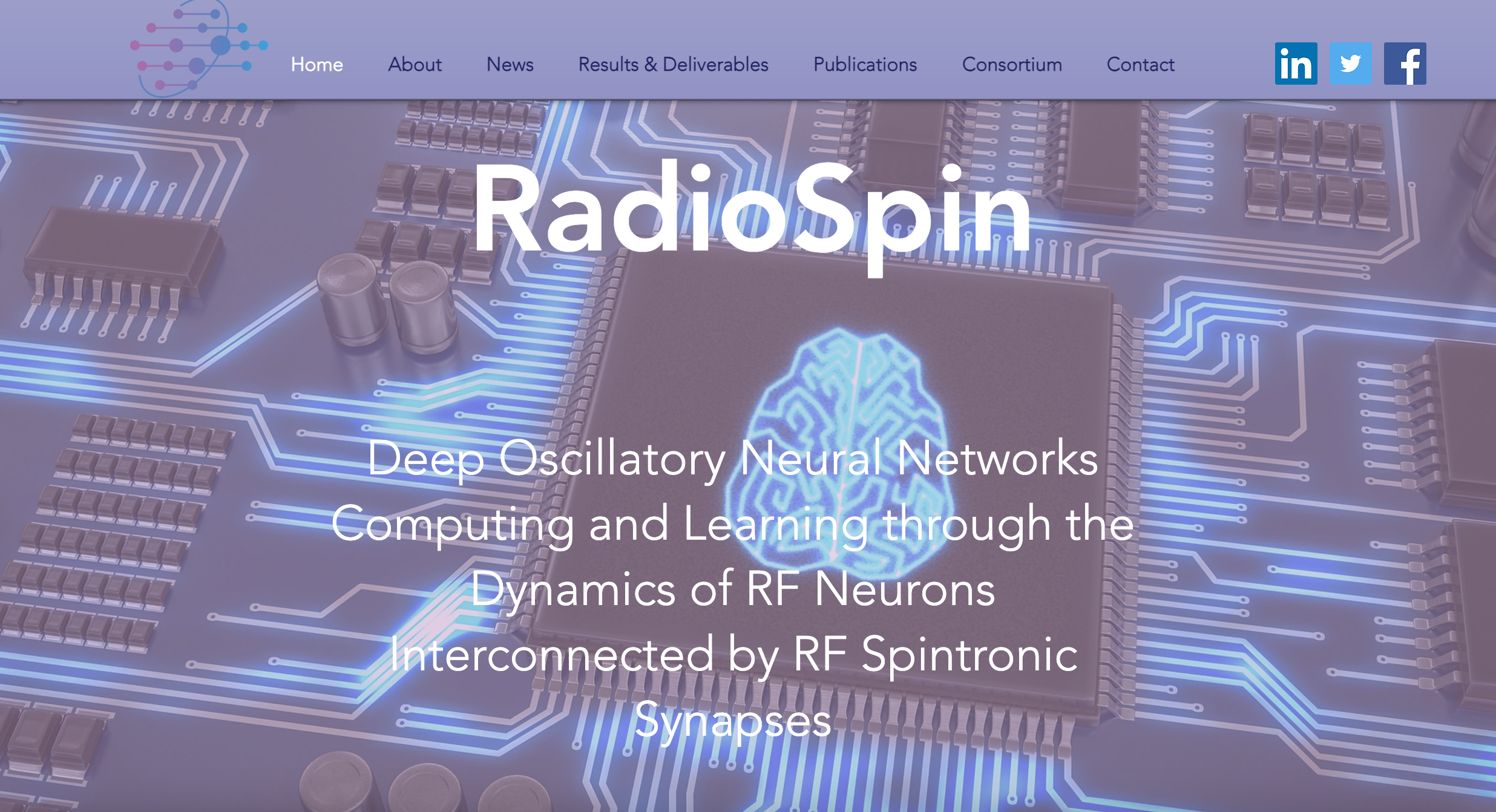
RadioSpin, building a hardware based on a neural network
January 17, 2023
Machine learning is a subfield of artificial intelligence, and can be defined as the capability of using data and algorithms to imitate the way humans learn, gradually improving the accuracy of the machine.
Deep learning, a type of machine learning, is inspired by the structure of the human brain. It uses artificial neural networks to perform sophisticated computations on large amounts of data. The EU-funded project RadioSpin combines deep learning and nanotechnology to process radio-frequency signals.
Currently, radio-frequency signals are brought to lower frequencies and digitised before being analysed. However, this digitisation is computationally heavy, consumes a high amount of power and generates vast amounts of data. Bypassing digitisation would provide significant gains in time, energy and area. RadioSpin will contribute to minimising the environmental impact linked to the increasing amount of electricity consumed by Information and Communications Technologies.
The goal of the RadioSpin project is to build hardware based on a neural network that is able to compute using neural dynamics (brain), that has a deeply layered architecture (neocortex), but runs and learns faster, by seven orders of magnitude.
Our team is using ultrafast radio-frequency oscillators to mimic the dynamics of biological neurons and we are also developing a new type of nano-synapses, based on spintronics technology, that directly processes the radio-frequency signals sent by neurons. Additionally, INL – International Iberian Nanotechnology Laboratory is building a lab-scale prototype that integrates these nano-synapses with CMOS. CMOS stands for a complementary metal oxide semiconductor and is one of the most popular technologies in the computer chip design industry, such as computer memories and mobile phones.
Artificial neural networks offer a new path for radio-frequency signal analysis. The results obtained in this project will open up new opportunities for deep machine learning applications, such as biomedical applications, telecommunications, transportation, and education.
RadioSpin is an interdisciplinary project bringing together six partners, which have a successful track record of collaborations together and have complementary expertise: INL – International Iberian Nanotechnology Laboratory, Université de Bordeaux (UBx), CNRS, Umbria Bioengineering Technologies (UBT), Thales, and Eurida.


